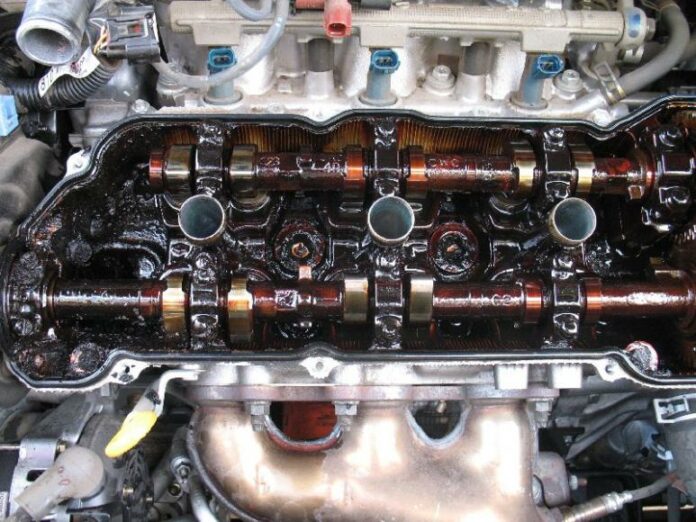Engine sludge is basically a dirty, sticky, grease-like substance, formed due to oxidation/contamination of oil in the engine. It is common in second-hand petrol engines, because many people who own these cars tend to opt for cheap solutions. These are some of the cause of sludge in the engine:
Idling refers to the process where the engine is running but the car is stationary. This is normally done in the morning to warm the engine and may be when the car is not moving while stuck in a traffic jam.
Most drivers leave their car engines idling during traffic jam. This means a distance, which is supposed to covered in 20 minutes will take more than two hours.
If the engine runs for two hours in the morning and two hours in the evening, this brings the total of kilometres ‘driven’ in a day to over four hours. In a week, one will cover between 150-200 km in approximately 23 hours.
This means the oil will not be able to reach the next mileage of service due to excessive idling leading to delayed service hence causing sludge. This is the reason why a few fleet managers have decided to change oil after calculating the number of hours the engine has been running.
Neglect of maintenance
The main one is delayed service, which makes engine oil to run for more miles than intended. Since it acts as a coolant in the engine and smoothens the running of other components, it is necessary that maintenance is done in time. When you delay or postpone service, there are high chances that sludge deposits will formed since the oil will not be in position to flow freely.
Use of inferior oil
In most cases, drivers do not read the manufacturer’s manual, which comes with the car and has all the specifications of the vehicle. When topping up on engine oil, it is very important to use a mechanic who has specialised knowledge in regards to what is or not needed.
While conducting service, it is wise to use engine oil, which is recommended by the manufacturer. Actually, this is made easy by the manufacturer by indicating the type of oil to be used in the engine on the dipstick holder. This is the reason why most German cars, for example, Audi and Volkswagen are the most affected cars because the owners often use oil which is not recommended by manufacturers.
Low quality fuels
The problem here is cheap fuels usually lead to carbon build up (engine sludge formation) which suffocates the engine and wreaks havoc on the fuel system.









